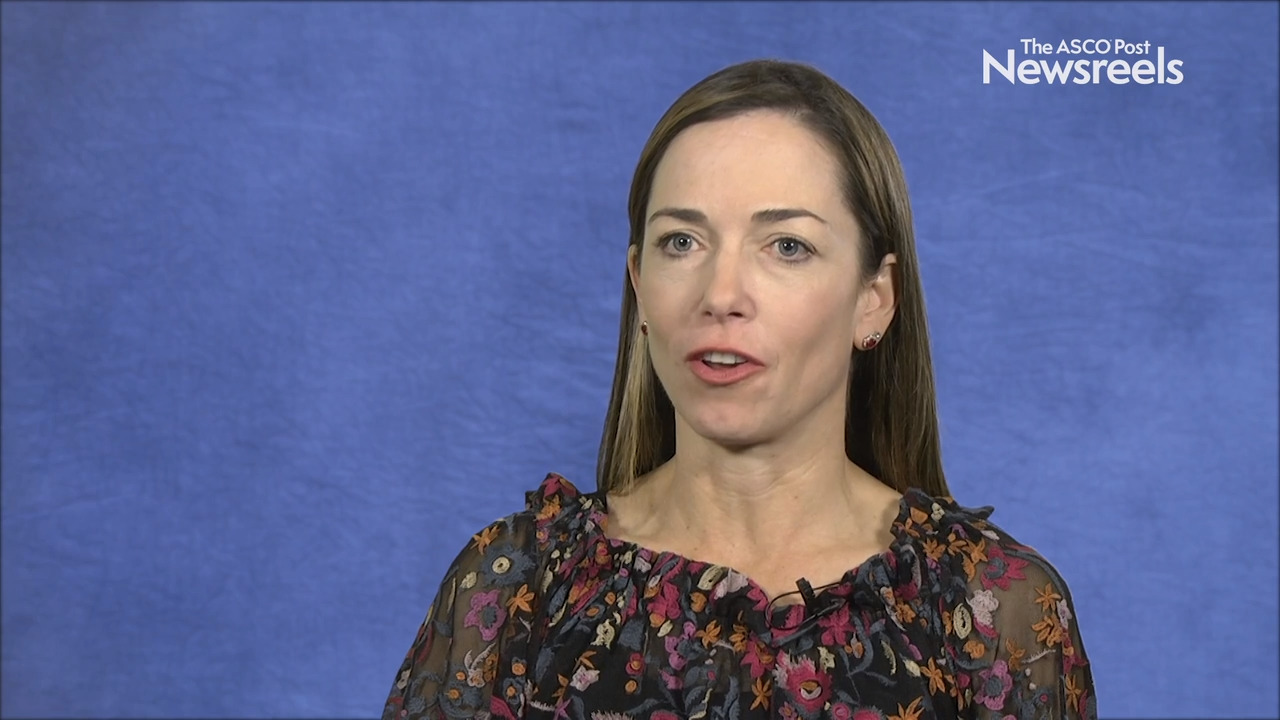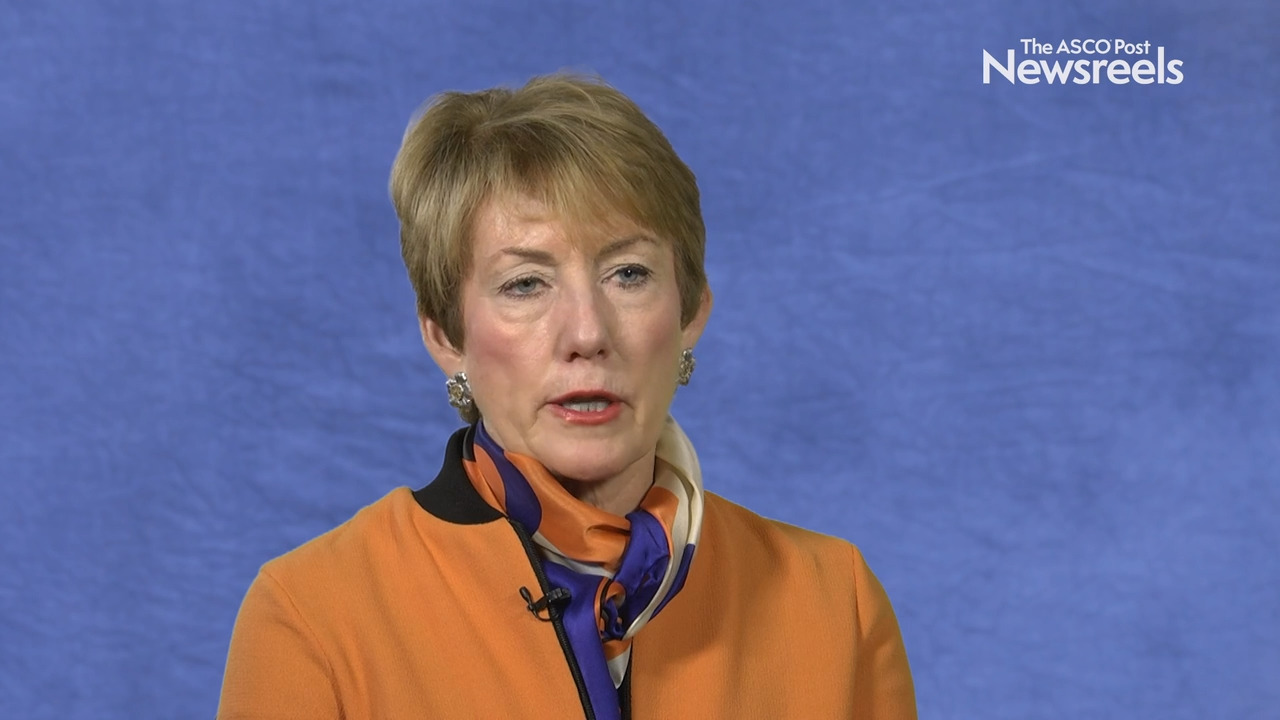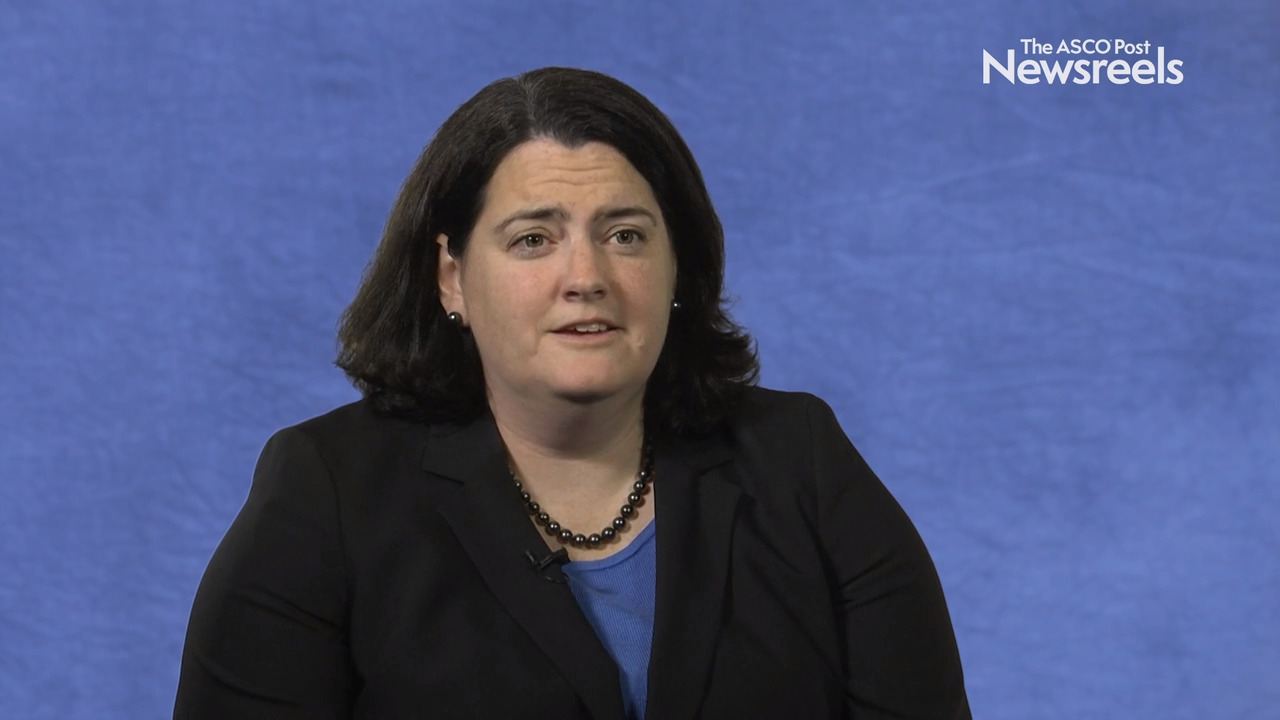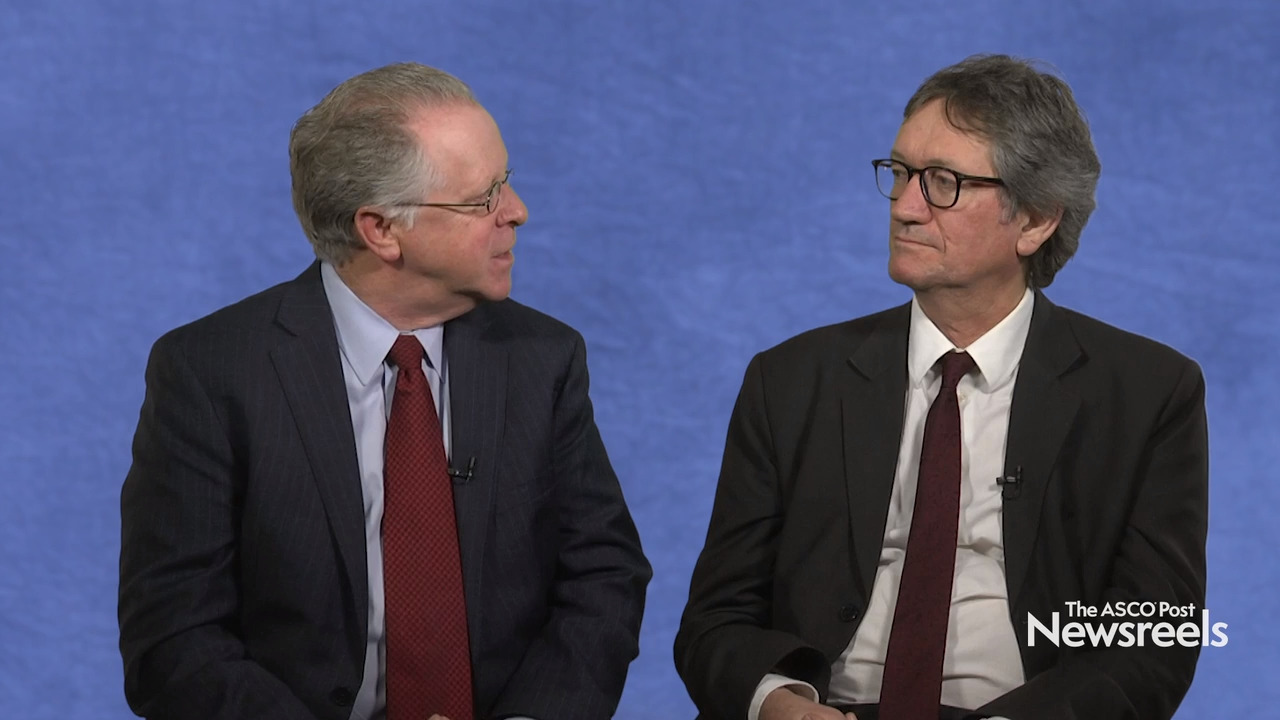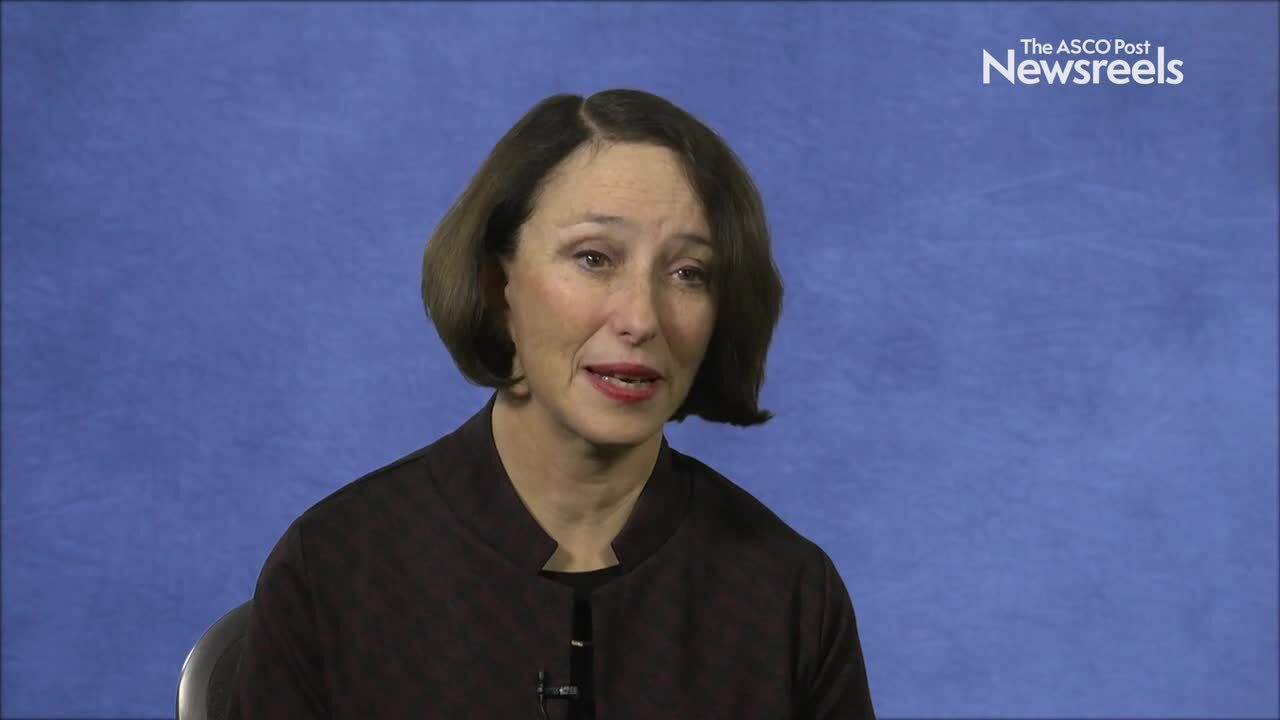Roisin M. Connolly, MD, on Breast Cancer Treatment Advances in 2018: Expert Perspective
2018 San Antonio Breast Cancer Symposium
Roisin M. Connolly, MD, of the Sidney Kimmel Comprehensive Cancer Center at Johns Hopkins, discusses clinical trials during the past year on studies on CDK and PI3K inhibitors in estrogen receptor–positive breast cancer and immune checkpoint agents in triple-negative breast cancer.
Sara A. Hurvitz, MD, of the University of California, Los Angeles, discusses the natural history and novel combinations for HER2-positive disease as well as predictive and prognostic markers for this type of breast cancer.
Monica Morrow, MD, of Memorial Sloan Kettering Cancer Center reviews lessons learned from top abstracts, including how to tailor the extent of local therapy to minimize morbidity, the diminishing role of axillary lymph node dissection, long-term sequelae of breast surgical procedures, and the need to discuss outcomes with patients.
Laura S. Dominici, MD, of the Dana-Farber Cancer Institute, discusses the lower quality-of-life scores seen after unilateral or bilateral mastectomy compared with breast-conserving surgery in women younger than age 40 who are treated for breast cancer (Abstract GS6-05).
Andrew D. Seidman, MD, of Memorial Sloan Kettering Cancer Center, and Richard G. Gray, MA, MSc, of the University of Oxford, discuss a meta-analysis of individual patient data from 12 randomized trials including 24,912 women on the effects—in terms of recurrence and cause-specific mortality—of prolonging adjuvant aromatase inhibitor therapy beyond 5 years (Abstract GS3-03).
Judy E. Garber, MD, of the Dana-Farber Cancer Institute, summarizes a special session she moderated, which included discussion of polygenic risk scores, genetic testing in diverse populations, and what to do when presented with moderate-penetrance mutations.
